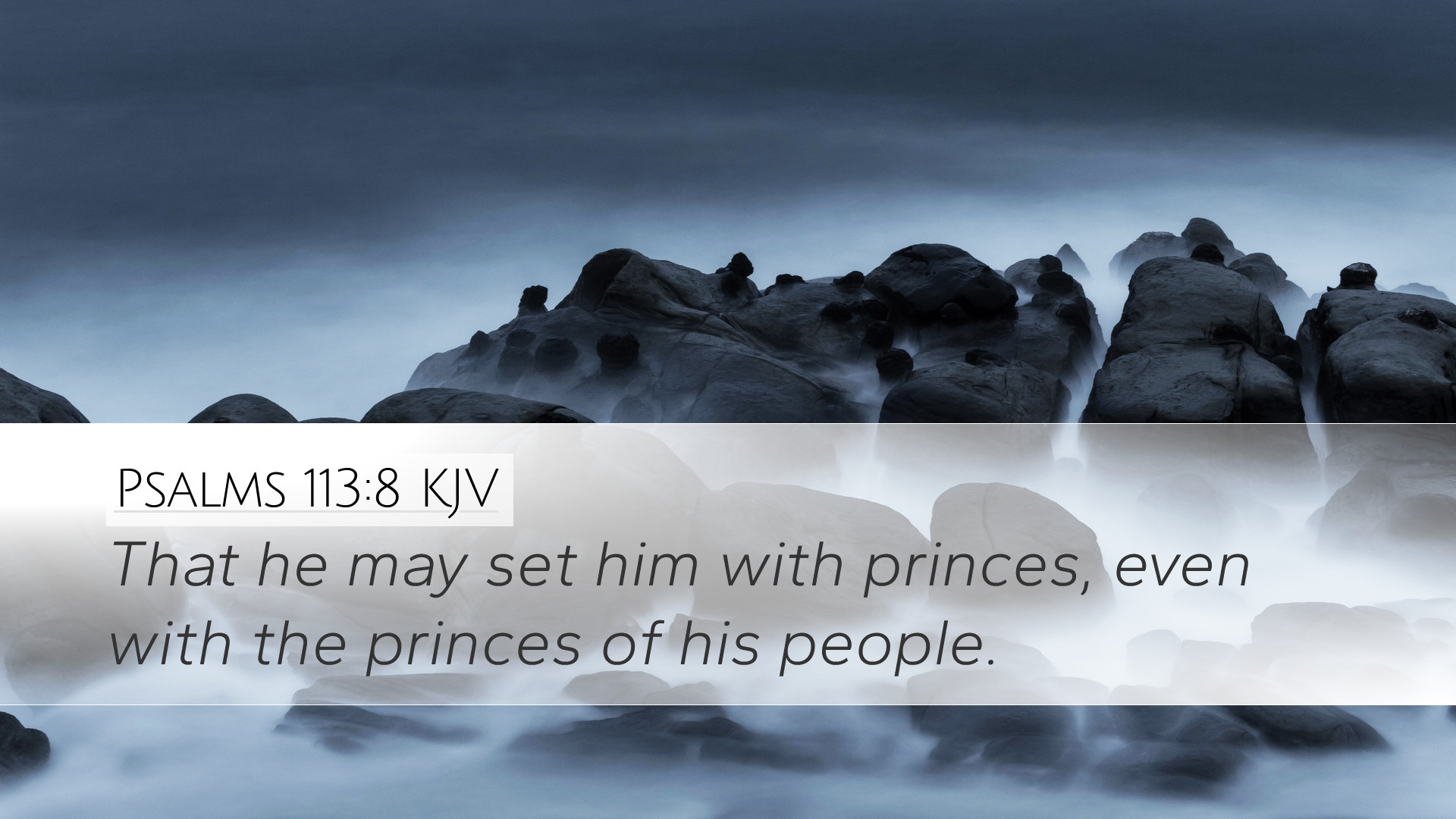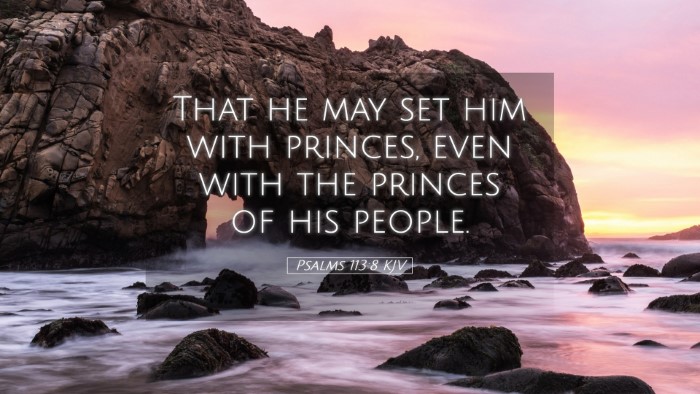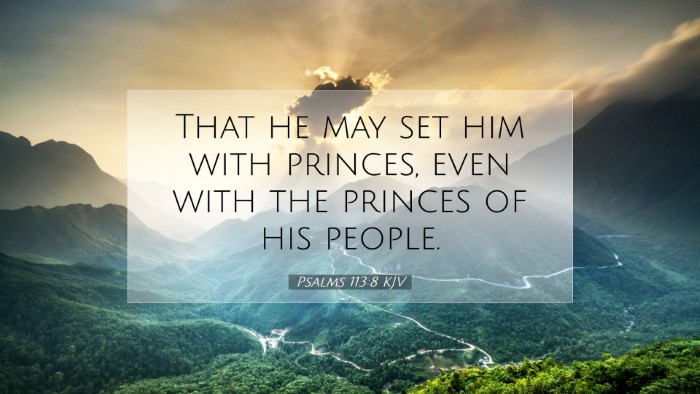Psalms 113:8 Commentary
This verse states: "That he may set him with princes, even with the princes of his people." This poignant expression encapsulates the elevation from humility to honor that God bestows upon those whom He chooses.
Contextual Overview
The Book of Psalms is frequently regarded as a compilation of songs and prayers that reflect the worship and adoration of God. Psalm 113 is part of a group of psalms known as the "Hallel," sung during Jewish festivals. This psalm emphasizes God's greatness and His mercy towards the lowly, serving as a prelude to the profound implications of divine elevation.
Insights from Matthew Henry
Matthew Henry notes that this psalm reflects on God's infinite greatness and His compassionate care for the needy. He asserts that the essence of this psalm is to demonstrate how God stoops to the lowly, even to the point of lifting them from the dust:
- The God of All Creation: Henry emphasizes God's sovereignty over all creation, indicating that He looks after the humble and poor, contrasting the earthly rulers who often disregard those in low positions.
- Divine Elevation: He posits that God has the power to elevate the humble to positions of honor, specifically aligning them with princes, which signifies restoration and dignity.
Reflections from Adam Clarke
Adam Clarke provides a rich theological perspective on this verse:
- Interpretation of “Princes”: Clarke interprets “princes” not merely as earthly rulers but as those who have authority and dignity. This interpretation extends to the spiritual realm, encouraging believers that God elevates them above worldly standings.
- Application to the Believer: Clarke expresses that every believer, regardless of their status, can be assured of their value in God's sight. God’s grace makes them co-heirs with Christ, which is the ultimate form of elevation.
Albert Barnes' Commentary
Albert Barnes offers detailed insights into the theological implications of this verse:
- The Nature of God’s Grace: Barnes discusses the grace of God in uplifting the downtrodden, suggesting that this elevation is rooted not in human merit but solely due to God’s lovingkindness.
- Symbolism of "Setting with Princes": He illustrates that being set among princes symbolizes being part of a divine council, indicating believers’ access to divine wisdom and authority. This is a call to Christians to recognize their honored position in God’s family.
Theological Implications
The implications of this verse stretch far beyond a simple elevation of social status:
- God’s Justice and Mercy: Reflects the core attributes of God, demonstrating His perfect justice by caring for the underprivileged while providing a stark contrast to worldly systems that often overlook the marginalized.
- The Role of Humility: Theologically, the emphasis is placed on the importance of humility as a precursor to exaltation. Those who are humble before God are rewarded, showing the kingdom principle of “the first shall be last.”
- Inclusive Nature of Salvation: This verse also signifies the transformative power of salvation that crosses social, economic, and cultural barriers inviting all into God's kingdom.
Practical Application
Pastors, students, and theologians may take several practical applications from this verse:
- Encouragement to the Lowly: Use this verse to uplift congregants who may feel marginalized within society. Remind them of their worth and God's promise of elevation.
- Challenge to Leaders: Church leaders are encouraged to reflect on how to lift up those in lowly positions within their congregations, following God's example of care and compassion.
- Foundation of Hope: For anyone struggling with feelings of worthlessness, this verse serves as an anchor of hope, demonstrating that God sees and values every individual.
Conclusion
Psalms 113:8 profoundly reveals God's heart for the humble and lowly, showcasing His desire to elevate and honor them. Through the lens of public domain commentaries, we are reminded of the transformative power of God's grace, which not only impacts individual lives but also shapes the very foundation of Christian community and worship. In the full scope of the Gospel, this verse serves as a powerful reminder that every believer is destined for a place of honor in God's eternal kingdom.


